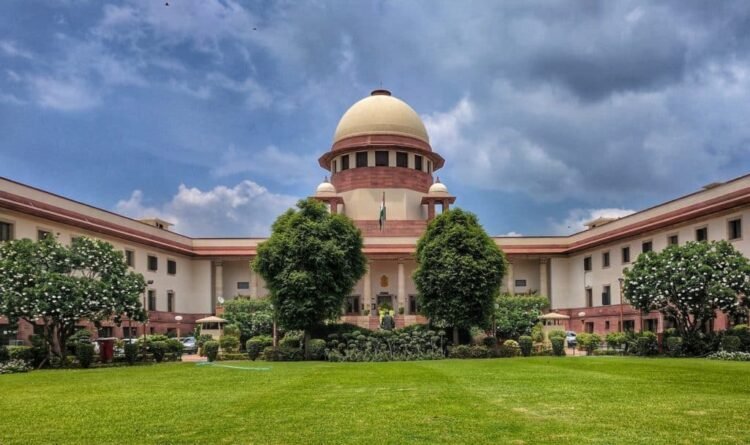Synopsys
- The Supreme Court’s interim stay on the Karnataka High Court’s ruling sets the stage for what promises to be a landmark legal confrontation.
- This case not only has significant implications for Gameskraft but also challenges the very foundations of India’s indirect taxation system.
- With high stakes and national attention, this legal drama is far from its final act.
NEW DELHI (Our Correspondent): In a significant development, India’s Supreme Court has suspended the Karnataka High Court’s annulment of a staggering Rs. 21,000 crore Goods and Services Tax (GST) notice against Gameskraft, a leading online gaming platform. The move by the apex court underscores the complexity of the case and raises important questions about India’s indirect taxation system.
The Flashpoint: A Record-Breaking Tax Notice
The case began in 2022 when Gameskraft was served a show-cause notice by a GST intelligence unit. The company was accused of a colossal GST default that totaled Rs. 21,000 crore from 2017 to mid-2022. This amount is unprecedented in the annals of indirect taxation in India.
Behind the Controversy: Unregulated Gaming and Questionable Invoices
Gameskraft, famed for games such as Rummy Culture and Gamezy, is not just in the dock for tax default. The platform also faces allegations of promoting online betting and failing to issue legitimate invoices to customers. These elements compound the gravity of the accusations against them.
The Tax Calculus: How the Rs. 21,000 Crore Figure Emerged
The GST authorities calculated a 28% tax on a betting sum of nearly Rs. 77,000 crore, which led to the astounding ₹21,000 crore figure. Adding to the controversy are accusations of illicit activities like falsifying invoices and luring customers into non-retractable bets.
High Court’s Countermove: A Critique and Nullification
In response to the allegations, Gameskraft appealed to the Karnataka High Court. By May 2023, the High Court didn’t just nullify the notice but also chastised the tax department for its biased arguments, throwing a wrench into the GST authorities’ plans.
The National Spotlight: Supreme Court’s Involvement
During the recent Supreme Court hearing, Additional Solicitor General N Venkatraman emphasized the far-reaching implications of the High Court’s judgment. Notably, the ruling had put other pending GST notices on hold. The Supreme Court has now granted the Directorate of Revenue Intelligence permission to proceed against Gameskraft.
Next Steps: What Lies Ahead in This Legal Saga
As the Supreme Court has given the green light for the Directorate of Revenue Intelligence to proceed against Gameskraft, the following steps will likely include an extensive investigation. Given the sheer magnitude of the alleged tax default, meticulous scrutiny of Gameskraft’s financial records, gaming operations, and customer transactions is anticipated.
A Litmus Test for Indirect Taxation Policy
This case serves as a pivotal moment for India’s indirect taxation framework. A decision against Gameskraft could potentially signal a stricter enforcement regime and result in an overhaul of the current GST mechanisms. On the other hand, a ruling in favor of Gameskraft might necessitate revisiting and potentially revising the rules that govern the taxation of online gaming and betting activities.
The Ripple Effect: Broader Implications for the Online Gaming Industry
Beyond Gameskraft, the case is being closely watched by the entire online gaming industry. It could set legal precedents that either inhibit or promote the industry’s growth. Tighter regulations could stifle innovation, whereas leniency might encourage increased entrepreneurial activity but may also raise concerns about responsible gaming and tax compliance.
Public and Legal Opinion: The Balancing Act
As the case unfolds, public opinion will likely be a factor that neither the judiciary nor Gameskraft can afford to ignore. Tax evasion on such a colossal scale is not a matter that can be brushed under the rug. However, the case also brings attention to the often blurry lines of what constitutes legitimate business activities and what may be considered ethically or legally dubious.
Final Thoughts: A Case Bound for the History Books
Regardless of its outcome, the legal battle between Gameskraft and the Indian tax authorities is set to become a landmark case. It tests the mettle of India’s indirect taxation system, challenges the operational ethics of a burgeoning industry, and captures the nation’s attention. With billions at stake, both financially and in terms of legal precedent, this is a case whose echoes will be felt for years to come.
(India CSR)







